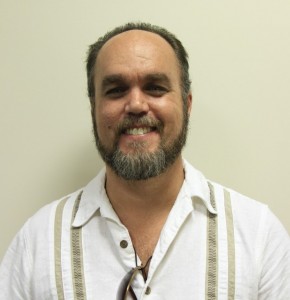 The first poem that really resonated with me was Etheridge Knight’s Hard Rock Returns to Prison from the Hospital for the Criminally Insane. Up until then I thought poetry was worthless. But to read its final lines while sitting in prison with a life sentence made the hair stand up on my arms.
The first poem that really resonated with me was Etheridge Knight’s Hard Rock Returns to Prison from the Hospital for the Criminally Insane. Up until then I thought poetry was worthless. But to read its final lines while sitting in prison with a life sentence made the hair stand up on my arms.
“The fears of years, like a biting whip / Had cut deep bloody grooves / Across our backs.” I fully felt the horror that he wrote about, and the dreadful fear of acting in defiance in the face of overwhelming control and violence.
Knight had discovered his gift for writing while in prison, and went on to become one of the nations most respected poets. The value of writing as an exercise in both self-connection and expression can’t be underestimated. It has the potential to alter how we perceive the world, and that can help us to heal and to behave differently.
PBS’s “Where Poetry Lives” series recently featured a program with a unique approach. The series, part of PBS Newshour, sends Poet Laureate Natasha Tretheway around the country accompanied by reporter Jeffrey Brown.
Together they explore unusual settings where poetry thrives. The most recent program featured Pongo Teen Writing, a 20-year- old nonprofit that focuses on connecting “teens who are on the streets, in jail, or in other ways leading difficult lives” with volunteers who help the teens learn to write.
The Poet Laureate, whose brother was incarcerated, and whose mother was murdered when Trethewey was 19, connected quickly with the kids and the goals of the program.
“My brother started writing poems in prison. He told me it was about making something out of the bad situation that he was in. To be able to make a poem out of that situation felt like the act of creation that was a triumph over the experience.”
And her mother’s tragic death was the genesis of Trethewey’s own writing.
“[I]t seemed that poetry was the only thing I could turn to that would help make sense of that enormous loss that I felt.’
The program featured Pongo’s work in King County Juvenile Detention Center in Seattle. Kids there are paired with volunteers, some of whom are poets, others with little experience in writing. The volunteers talk with the young people, prompting them to share their stories.
Some speak of regrets, others of trauma, and for many it is their first opportunity to express themselves. The volunteers write down lines of poetry that attempt to convey the stories, thoughts and emotions of the kids, then together they edit the poem until the teen is satisfied with the results.
One young woman had suffered a miscarriage while incarcerated. She described it to the volunteer.
“When I found out I had lost the baby, I felt like I had been crushed by a boulder. It made me think about the father. It made me realize I didn’t want to have a family with someone like him.”
Another teen, a young man, talked about his battle with addiction, and his feeling of “crying wolf.”
“I keep on saying I’m going to get better and stay clean and sober, but then the drugs just come back.”
At the end of the session the kids get a chance to read their poems to the group. Later the volunteers deliver the written poems to the teen’s cells. The program has been running nearly two decades, and has enthusiastic support from the center’s staff as well as juvenile judges.
It may be that in most prisons Oscar Wilde’s words in The Ballad of Reading Gaol still ring true. “The vilest deeds like poison weeds / Bloom well in prison-air / It is only what is good in Man That wastes and withers there: / Pale Anguish keeps the heavy gate / And the Warder is Despair.”
With the help of Pongo and its volunteers there are many places where “what is good” is getting another chance, or even its first chance, to blossom and grow.